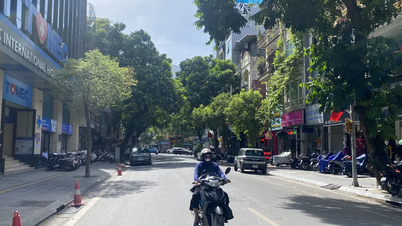Find out the causes of overweight and obesity in Vietnam
Recently, the Ministry of Finance proposed a plan to impose Special Consumption Tax (SCT) on sugary drinks, with the aim of controlling the increase in overweight and obesity rates and protecting public health. However, this draft is still controversial. Many scientific studies and expert opinions show that the causes of overweight and obesity need to be more fully recognized.
Associate Professor, Dr. Nguyen Thi Lam also added: there are many causes of overweight and obesity, of which sugary drinks are not the main cause, but due to excess energy intake beyond needs and little exercise. To effectively solve this problem, it is necessary to objectively and fully assess the factors related to overweight and obesity, and especially promoteeducation and communication about proper nutrition.
Another previous study on sugar consumption of children in Vietnam, Cambodia and Japan concluded that there was no association between consumption of sugary foods and drinks and overweight and obesity.
A sedentary lifestyle is a worrying reality that affects health, especially for children. A survey in Ho Chi Minh City showed that students exercise too little, only 26.1% of high school students participate in at least 60 minutes of exercise per day. Up to 30% of middle school students do not exercise or do daily activities. Although they are "lazy" to exercise, Vietnamese children spend a lot of time during the day sitting still, not consuming energy, watching TV, playing games, using social networks, etc.
Along with lack of exercise, people with an unreasonable diet, taking in too many calories compared to the energy consumed, will easily become overweight and obese.
Among the nutrients that enter the body, fat is one of the leading factors causing overweight and obesity. The University of Glasgow concluded that fat causes more weight gain than sugar. A study of nearly 132,500 obese people in the UK concluded that a larger proportion of energy comes from fat than from sugar in the diets of overweight people.
Furthermore, sugary drinks actually contribute very little to a person's daily sugar intake. In a person's diet, the largest amount of sugar comes from rice, bread, and milk sugar in pastries.
Notably, according to statistics/research by the Institute of Nutrition, Ministry of Health of Vietnam, the urban student group has a higher rate of overweight and obesity than the rural student group (41.9% vs. 17.8%) but has a lower rate of soft drink consumption (≥3 times/week) (16.1% and 21.6% respectively). In addition, compared to soft drinks, children consume other sugary products such as candy, ice cream, tea, etc. more (51.1% in urban areas and 56.4% in rural areas).
Taxing sugary drinks to reduce obesity: still controversial
Around the world, some countries have applied excise tax on sugary drinks. However, this measure has not been proven to be effective in reducing the rate of overweight and obesity, and even has negative impacts on the economy and life.
In 2012, Denmark had to abolish the excise tax on soft drinks because this policy caused unemployment, increased inflation, increased administrative costs for businesses, while having a negligible impact on food and beverage consumption.
In Asia, some countries such as Thailand, Cambodia, Laos, and Brunei have imposed special consumption tax on sugary drinks, but the rate of overweight and obesity in these countries continues to increase.
 |
Meanwhile, strengthening education to encourage people to choose a healthy lifestyle has proven to be more effective in reducing overweight and obesity, protecting public health. A typical country that has succeeded with this method is Japan. Although it is among the most developed industrial countries in the world, Japan has an obesity rate of only 3.5%.
To reduce the number of overweight and obese people, the Japanese government has established a national strategy to improve health, “21st Century Health in Japan,” with two laws, Shuku Iku and Metabo.
 |
Introduced in 2005, the Shuku Iku Law mandates the creation of healthy menus in schools and the teaching of nutrition to students. The Metabo Law requires adults aged 40 to 75 to regularly monitor their waist circumference to avoid cardiovascular disease (under 94cm for men and under 80cm for women). The law also requires companies to provide breaks for employees to exercise, and encourages employees to participate in physical activity after work.
Source



































































































Comment (0)